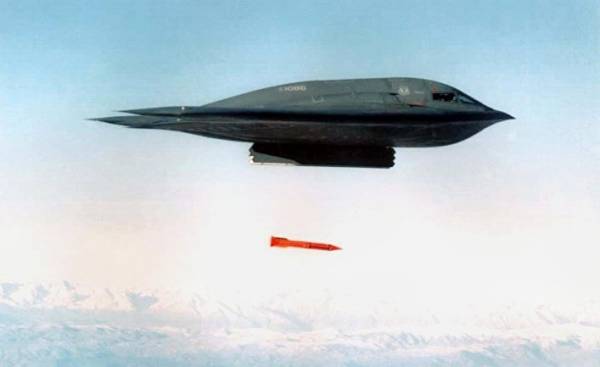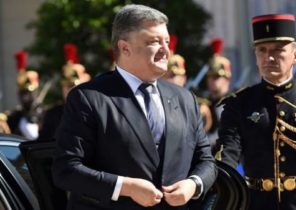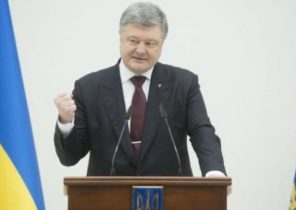
Developed by Northrop Grumman stealth bomber B-2 Spirit can not fail to impress. Unnoticed, he is able to fly thousands of miles and drop a thermonuclear bomb on any of the many goals on our planet. According to some government estimates, each one standing on the armament of the B-2 subject to the development cost of the U.S. air force worth $ 2.1 billion.
Countries that have money and technology to create something similar, a little bit. Reasons to use such weapons is also a bit (thank God). Accordingly, the United States retains predominance in fact, based on what their two main strategies of opposition — to nuclear weapons and precision missiles. However, although these technologies still need to withstand challenges by the powers-rivals, in our fast changing world they are no longer enough.
In the NATO countries a large part of defence spending still goes to an incredibly expensive metal boxes, able to travel, go by sea or to fly. However, as in many other parts of our digital world, military power is shifting rapidly from the realm of the visible to the invisible, from machinery to software, from atoms to bits. And this shift dramatically changes the situation associated with deploying forces — and in terms of cost and in terms of opportunities and in terms of vulnerabilities.
Compare the cost of B-2 with a negligibly small value of the terrorist or state-supported hacker is able to periodically plunge into the chaos of foreign banks, the transport infrastructure — or even democratic elections.
The US is partly recognized that the reality is changing. In 2014, they outlined the third strategy of opposition, declaring that America needs to maintain supremacy in the next generation technologies — such as robotics and artificial intelligence. The only country that is able to compete with America in these fields is China, actively pour money into them.
However, in the era of asymmetrical conflicts, the third strategy of the counterweight is able to cope only with a part of threats. In the virtual world there are very few rules of the game, the intentions and capabilities of the enemy is difficult to assess, but the real way to understand lose you or win, just not.
This opacity is very convenient for those who want to undermine the military power of the West. Apparently, China and Russia understand this new world disorder is much better than others — and can use vulnerabilities of the West.
Chinese strategists were among the first to map these new territories. In 1999, two officers of the people’s liberation army of China has published a book called “Unlimited war” (“Unrestricted Warfare”). In their opinion, three essential “elements of any war”- namely, soldiers, weapons and battleground has now changed beyond recognition. Among the soldiers entered the hackers, financiers and terrorists. Weapons can be anything — civilian aircraft, browsers, computer viruses. Well, the battlefield is now “everywhere”.
Russian strategists are also expanding their ideas about what a military force. In recent conflicts in Georgia and Ukraine, Moscow used the traditional methods of force. However, she also organized cyber attacks against both countries and against Estonia. In addition, she is accused of “hacking” the American presidential election.
In addition, it is expanding its operations disinformation KGB-style. Professor mark Galeotti (Mark Galeotti) calls it the “transformation of information into a weapon.” According to Dmitry Kiselyov, Russian TV host and Kremlin propagandist, information warfare has become “the main type of warfare”.
A former employee of rose Pentagon Brooks (Rosa Brooks) said that American forces not too suitable to resist the great variety of challenges. It offers to rethink the defense of the Western societies and the use of “soft power” and turn them into a collective national objectives. “Imagine a renewed public sector that is based on the idea of universal service – an America where every young man and every young woman a year or two to devote to work, strengthening national and global security,” she writes.
While Donald trump continues to occupy the White house, these ideas are unrealistic. He is convinced that we need to spend more on old-fashioned military equipment. In addition, the Kremlin could hardly find some better U.S. President than this man, praising Vladimir Putin as a strong leader, not hurrying to support the collective security of NATO and accused the American press of spreading “false news”.
In the context of so-called memetic wars, the Kremlin might consider that he’s already won. However, the entourage of Mr. Putin early to rejoice. They should remember that the West is much less dependent on specific people and institutions than Russia. Now the U.S. Congress is pushing for the introduction against Moscow of tougher sanctions for its intervention in the presidential election.
Moreover, the internal opponents of the Russian President is also adopting new strategies. So this year, opposition leader Alexei Navalny has released a beautifully shot video on the alleged corruption of Prime Minister Dmitry Medvedev. In social networks, it was viewed almost 24 million times.
Despite all their practical skills, authoritarian States are rapidly losing their monopoly on the conversion of information into a weapon.







